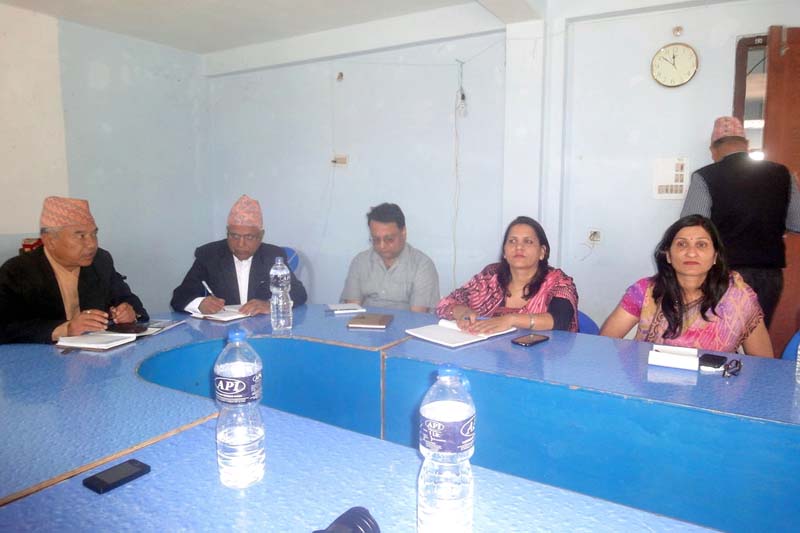Process of selecting TRC, CIEDP members okayed
Kathmandu, April 7
The first meeting of the committee to recommend new members and chairpersons of two transitional justice mechanisms — Truth and Reconciliation Commission and the Commission of Investigation on Enforced Disappeared Persons — today endorsed their selection process.
Tenure of existing members of the commissions expires on April 13.
As per the selection process, the committee led by former chief justice Om Prakash Mishra will first publish a notice in a national-level newspaper seeking applications from people aspiring for the aforementioned posts. Committee member Sharmila Karki said the notice would be published tomorrow in Gorkhapatra national daily.
Aspirants need to fill an application form, a sample of which will also be published along with the notice, and submit it to the committee’s secretariat housed at the Ministry of Law, Justice and Parliamentary Affairs within seven days of the publication of the notice.
The committee will then compile a list of prospective candidates eligible for the posts based on the Transitional Justice Act, Sections 4 and 5.
As per the act’s Section 4, a member or chairperson of the commissions should have at least a bachelor’s degree from a recognised education institution; should not be a member of any political party at the time of his/her appointment; should have high moral character; should have worked in the areas of human rights, peace, law, conflict management, and sociology; and should have attained the age of 35.
In the case of chairperson, the person should be a former justice of the Supreme Court, or a former chief judge of appellate court, or have worked in special post of judiciary, or should be eligible to be appointed as a justice of the Supreme Court.
As per the act’s Section 5, a person will be deemed ineligible for the posts of member or chairperson of the commissions if s/he is a foreign national; has been convicted by the court in cases involving moral turpitude; and has been convicted of grave human rights violation.
The selection process states that the committee can also list any eligible person’s name even if that person has not filed application within the given deadline, at the recommendation of a person or institution or at the committee’s own discretion, considering special qualification and experience of that person.
Subsequently, the committee will publish the list of prospective candidates, before publishing a five-day notice seeking complaints against them. After carefully studying the complaints, if any, the committee will recommend chairpersons and members of the commission as per the act’s Section 3 (2), which states that the commission will have five members, including at least one woman member each.
Before making final recommendation to the government, the committee can also hold consultations with stakeholders, including conflict victims, human rights activists or other individuals and institutions as deemed necessary.
Karki said the committee also planned to hold consultation with the stakeholders on April 12 on the entire selection process.
Conflict victims, however, lambasted the committee for ‘unilaterally’ endorsing the selection process without consulting them. They said the government was making mistakes from the very beginning of the selection process as the committee itself was formed without consulting the victims.
“This is just the initial phase and they are imposing their decisions on us. Just imagine what they would do in the days to come,” said Suman Adhilari, former chairman of the Conflict Victims’ Common Platform. “The fact is, the government has already finalised the commission members, and the selection process is a mere formality.”
Adhikari said the government should also take ahead the process of amending the act as per the Supreme Court verdicts and international standards. He said the commissions would not be able to function without amending the act, no matter how competitive its members were.
Gopal Shah, vice-president of another victims’ group, Conflict Victims’ National Network, also expressed similar views. “What was the need for the committee to endorse the selection process in its first meeting?” he questioned. “They could have at least asked us for a feedback on the process.”
However, Karki of the committee said their decision was in line with the act and nothing else. Since it was necessary to act fast as the existing commission members’ term was expiring on April 13, they decided to simultaneously hold consultations with stakeholders as applications came in.






